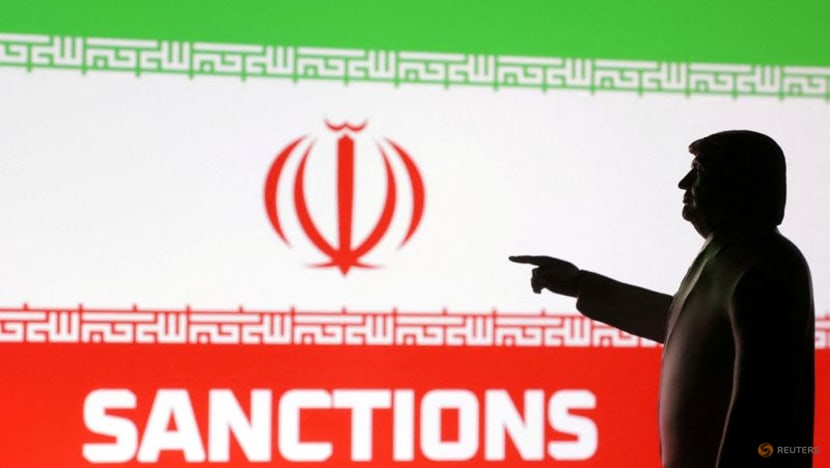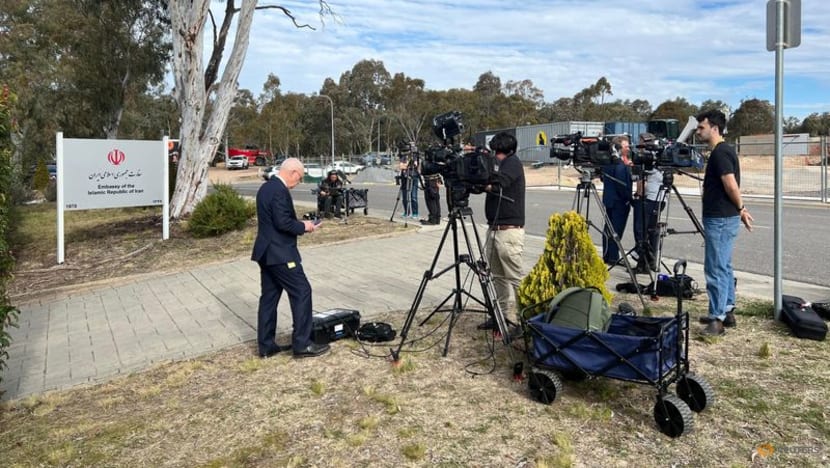Europeans launch UN sanctions process against Iran, drawing Tehran ire

PARIS: Britain, France and Germany on Thursday (Aug 28) triggered a 30-day process to reimpose United Nations sanctions on Iran over its nuclear programme, a move likely to escalate tensions two months after Israel and the United States bombed Iranian facilities.
Iran swiftly denounced the decision, with a senior official accusing the three European powers of harming diplomacy and insisting Tehran “will not concede under pressure”.
E3 MOVE TO ‘SNAP BACK’ SANCTIONS
The so-called “snapback mechanism” was activated as the E3 feared losing the option to restore sanctions when their prerogative expires in October.
French Foreign Minister Jean-Noel Barrot said the decision did not mean the end of diplomacy, while German Foreign Minister Johann Wadephul urged Iran to cooperate with the International Atomic Energy Agency (IAEA) and commit to direct talks with the US in the coming month.
In a letter to the UN Security Council, the E3 said they remained committed to a diplomatic solution but warned that Iran must show readiness to restore inspector access and address concerns over enriched uranium stockpiles.
The Council is due to meet on Friday behind closed doors to discuss the issue.
IRAN REJECTS PRESSURE
An Iranian official told Reuters the move was “illegal and regrettable” but said diplomacy with Europe would continue. Tehran has warned of a “harsh response” if sanctions are reinstated and is considering withdrawing from the nuclear Non-Proliferation Treaty.
Iran is enriching uranium up to 60% purity, just below weapons grade, and had stockpiles sufficient for multiple bombs before Israeli strikes in June, according to the IAEA. Tehran insists its programme is for civilian use.

US, ISRAEL BACK E3
US Secretary of State Marco Rubio welcomed the European decision and said Washington remained available for direct engagement “towards a peaceful, enduring resolution”. An Iranian source said Tehran would only consider talks if Washington guaranteed no further military strikes during negotiations.
Israeli Foreign Minister Gideon Saar called the move “an important step in the diplomatic campaign to counter the Iranian regime’s nuclear ambitions”.
RUSSIA, CHINA COUNTER
Russia and China, allies of Iran, circulated a draft Security Council resolution proposing to extend the 2015 nuclear deal for six months and urging all parties to resume negotiations.
“The world is at a crossroads,” said Russia’s deputy UN ambassador Dmitry Polyanskiy. “One option is peace, diplomacy, goodwill. Another option is diplomacy at the barrel of the gun.”
The looming sanctions have heightened economic anxiety and political divisions inside Iran. Hardliners are pressing for defiance, while moderates argue for renewed diplomacy.
The snapback process, once completed, would restore measures against Iran’s financial, energy and defence sectors.














